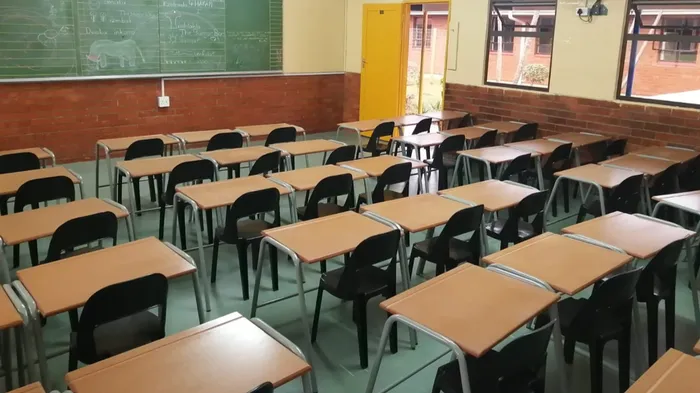
The Legal Resources Centre (LRC) is representing a transgender learner who was allegedly denied the right to express his gender identity at his Somerset West primary school.
Image: Independent Media
THE Legal Resources Centre (LRC) has argued that even though a transgender learner who was allegedly denied the right to express his gender identity at his Somerset West primary school, is no longer at the school or in the country, he is still entitled to relief for the discrimination he experienced.
They argued that harm does not disappear simply because the victim is no longer in the environment where it occurred.
Judgment was reserved in the Equality Court case involving the then-8-year-old transgender learner whose parents allege that he was repeatedly denied the right to express his gender identity at Beaumont Primary School.
The legal battle has been ongoing for several years and the child has since moved to another country.
The case against Beaumont Primary School, the Western Cape Education Department (WCED), at this stage focused on three key issues including whether the court has jurisdiction to hear the case, whether the matter is moot because the learner has since left the school and South Africa, and whether the Commission for Gender Equality should be admitted as an intervening party in the public interest.
The learner and his parents, represented by the LRC, argued that even though he is no longer at the school or in the country, he is still entitled to relief for the discrimination he experienced. The Commission’s application to join the case was brought in the public interest and calls for national regulations to help schools and parents better support gender-diverse learners.
The learner and his parents allege that during his time at the school, he was prevented from using the boys’ bathroom or wearing a boys’ swimming costume, activities which constitute a key element of asserting his gender identity. This as it involves making decisions and/or taking affirming decisions in his daily life including, how he dresses and the gendered bathroom he uses, court papers read.
“The school acted in a manner, and enforced policies and rules, that directly or indirectly imposed disadvantages upon (the learner) and withheld benefits from him. It did so on the basis of his gender identity and expression. (The learner) was intentionally singled out and treated differently from other cisgender boys and learners in general. For example, he was told to use a unisex bathroom that no other cisgender learner used which was located within the bathroom designated for cisgender girls. He was also forced to wear a "unisex"swimming costume, which consisted of the boys' swimming costume with a second-skin swimming top that no other cisgender learners were required to wear. The School has not given a reasonable or rational explanation for its differential treatment towards (him). Thus, the School's conduct amounts to unfair discrimination and is unlawful and unconstitutional,” court papers read.
This experience negatively impacted on the child’s education and mental health, the LRC argued. It created an environment that wasn't conducive to his learning or social transition and he was in constant fear of intimidation, bullying, and discomfort.
The parents are seeking damages in the amount of R100 000, for the impairment of dignity, as well as the boy’s emotional, physical and psychological pain and suffering, among others.
Among the relief sought is an order directing the school and governing body to make an unconditional apology to the child in writing and in person for the school's alleged failure and/or refusal to allow him to express his gender identity and for the psychological harm that it caused him.
They also want an order directing the school and the WCED to take immediate steps towards the adoption of a Gender Inclusive Policy through a process of meaningful consultation with gender experts and all parents, particularly parents with children who will be materially affected by such policy.
Approached for comment, WCED spokesperson, Bronagh Hammond said: “The WCED understands the sensitivity of this matter and we are committed to ensuring that all involved are protected. The case is currently before the Court to determine mootness and therefore we are not able to comment further.”
Cape Times